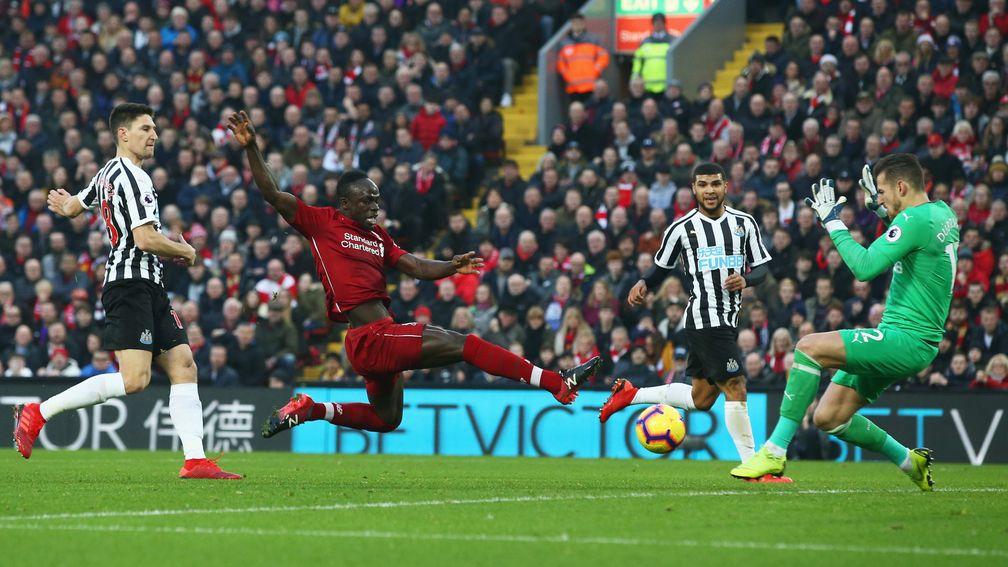Anti-gambling hardliners can't self-isolate themselves from the facts

Michael Dugher is CEO of the standards body, the Betting and Gaming Council (BGC)
In the absence of the race for real because of the coronavirus, millions of people tuned into ITV and watched the Virtual Grand National, with bookies donating all profits – more than £2.6 million – to NHS charities.
In these dark days, as Britain battles through the Covid-19 pandemic, the event provided a little light relief and entertainment.
But with millions across Britain self-isolating and rightly staying at home, the usual suspects from the anti-gambling lobby have been on their high horses this week accusing the betting industry of 'cashing in' and profiteering during the crisis. Nothing could be further from the truth.
Like any other part of the leisure, hospitality and entertainment industry, the economic pain from Covid-19 has been felt right across our industry. Bingo halls, betting shops and casinos, which support tens of thousands of jobs, have all been forced to close and sporting fixtures – the lifeblood of our industry – have been suspended.
Closures and the absence of live sport, which some people forget makes up a big chunk of online betting, has seen levels of gambling plummet. Accordingly, this means less revenue. It's not rocket science.

In fact, gambling revenue in Britain has fallen dramatically – by between 50 to 60 per cent – according to initial reports from our members at the standards body BGC. To put this into context, this is equivalent to a drop in gambling by British adults of £100 million per week. GVC alone is forecasting a negative impact of £50m each month.
It's hard to overstate the importance of sport, to online betting in particular. For big online operators it can represent up to 80 per cent of their turnover. And it isn't the case that many traditional retail customers will all switch to online or that those punters, like me, who enjoy an occasional bet on the football or the horses, will switch to gaming. Many, most even, have just stopped betting.
Over the past year we have also closed hundreds of thousands of accounts after implementing strict new age and ID verification procedures, where the customer was unable or willing to provide the information required before they could place a bet.
Yet, notwithstanding the fact overall levels of gambling are down markedly, I still understand the worries many might have about millions of people self-isolating, stuck at home, anxious or simply bored. That's why our industry has stepped up safer gambling measures as Britain went into lockdown.
The BGC immediately put in place a comprehensive ten-pledge action plan designed to ensure the highest safeguards are in place and that action is taken to protect anyone who may be more vulnerable as a result of the Covid-19 outbreak.
The measures include more safer gambling messages sent to customers and heightened interventions if customers increase time and spend beyond normal pre-crisis patterns. We are also actively promoting deposit limits, taking action to ensure responsible advertising, monitoring volumes of spend to spot any changes in customer behaviour and intervening to restrict or block accounts where there is a risk of harm.
These pledges shouldn't be viewed in isolation. They are part of a package of measures that underline the commitment of the BGC to drive big changes across our industry, during the Covid-19 crisis and beyond.

These include: restricting under 25s from qualifying for high-value customer accounts ('VIPs'); adopting a 25+ age filter for online platforms; slower speeds for online games; the removal of some game functions to reduce the risk of impulsive behaviour; a whistle-to-whistle ban on advertising; substantially increasing funding for research, education and treatment (RET); ending exclusive rights to screen FA Cup games; and implementing a ban on betting with credit cards.
If opponents of gambling are serious about protecting customers, they should also focus their efforts on the black market firms that operate out of reach of the regulator, the Gambling Commission.
Those illegal online operators take £1.4 billion from British punters every year and don't sign up to any of the standards that govern the BGC's regulated members' activities. They are not signing up to strict advertising standards or verifying people's ages or intervening on customers who start to get into the difficulty. Yet where is the moral outrage or call for action from critics?
Millions of people enjoy an occasional flutter and do so perfectly safely and responsibly. I know many people have their criticisms of our industry and it is fair to say the industry has not always been best in class in recent years. But that is changing. At the BGC, we are driving big changes across the industry and we are looking forward to engaging with the government on its important review of the Gambling Act.
By all means have a pop at the industry. Many people have genuine concerns and it's important we address them. But as for the hardline prohibitionists, who are sadly using Covid-19 as just another opportunity to grab cheap headlines, they can't self-isolate themselves forever from the facts.
Read more:
Betting Gaming Council and GVC pledge to protect gamblers during crisis
Business rates: government relief a 'shot in the arm' for beleaguered bookmakers
Keep up to date on the must-have news, tips, photos and more by following the Racing Post across all social channels
Published on 10 April 2020inComment
Last updated 14:31, 10 April 2020
- The whole shape of the Irish Flat season is being defined by one man only - and even his main targets lie elsewhere
- Analysis: Flutter and 888 have enjoyed contrasting fortunes but they still have things in common
- Only a baby step but an important one if racing is to keep some of its David v Goliath moments
- There are so many great betting opportunities on Saturday - here are my best bets including a very strong Curragh fancy
- Coolmore and Godolphin spare the sport some embarrassment - and not for the first time
- The whole shape of the Irish Flat season is being defined by one man only - and even his main targets lie elsewhere
- Analysis: Flutter and 888 have enjoyed contrasting fortunes but they still have things in common
- Only a baby step but an important one if racing is to keep some of its David v Goliath moments
- There are so many great betting opportunities on Saturday - here are my best bets including a very strong Curragh fancy
- Coolmore and Godolphin spare the sport some embarrassment - and not for the first time